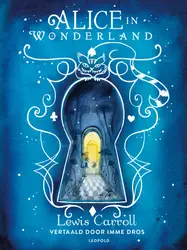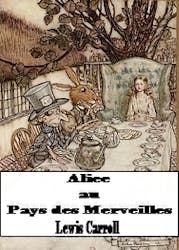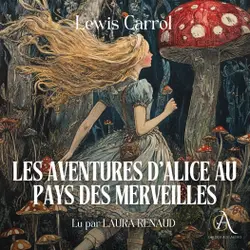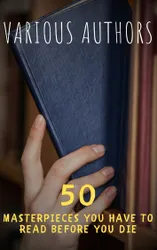In 'The Greatest British Classics', readers are presented with an unparalleled collection that weaves through the rich tapestry of British literature, showcasing an impressive range of literary styles and themes. From the whimsical realms of Lewis Carroll and the Brontë sisters' brooding moors to the sharp wit of Oscar Wilde and the grand historical narratives of Sir Walter Scott, this anthology celebrates the diversity and significance of British literary contributions. Standout pieces include seminal works that have shaped not only the literary landscape but also the cultural and philosophical fabric of their time, presenting readers with a comprehensive overview of British literary heritage. The contributing authors, a veritable who's who of British literature, bring together a myriad of backgrounds, each adding a unique voice to the anthology. Together, these authors represent a variety of historical, cultural, and literary movements, from the Romanticism of Keats and Shelley to the Victorian realism of Dickens and Eliot, and the modernist innovations of Joyce and Woolf. Their collective contributions offer insights into the shifts in British society and thought, providing a rich context through which these literary works can be appreciated. The anthology serves not just as a collection of individual pieces, but as a dialogue between the different periods and styles represented. 'The Greatest British Classics' is a must-read for anyone looking to immerse themselves in the depth and diversity of British literature. It offers a unique opportunity to explore a wide range of literary masterpieces within a single volume, showcasing the breadth of insights and the rich dialogue fostered between the various authors' works. Whether a student of literature, a casual reader, or a seasoned scholar, this collection provides a valuable educational resource, allowing for a deeper understanding and appreciation of the themes, styles, and characters that have shaped British literature and continue to influence the world today.

Alice in Wonderland
Lewis Carroll
book
Alice au Pays des Merveilles
Lewis Carroll
audiobookbook
12 Classic Books You Need to Read Before You Grow up
Antoine de Saint-Exupery, Lewis Carroll, Robert Louis Stevenson, Frances Hodgson Burnett, Mark Twain, Eleanor H. Porter, Jules Verne, Charles Dickens, Jack London, Lyman Frank Baum, Margery Williams, J.M. Barrie
audiobookbook
Les Aventures d'Alice au pays des merveilles - Livre Audio
Lewis Carroll, Livres audio en français
audiobook
Spectres, Spooks & Spirits : A Ghostly Anthology
Algernon Blackwood, Lewis Carroll, Charles Dickens, Arthur Conan Doyle, W. Bob Holland, James, Leonora Lang, E. Nesbit, Elizabeth Semple
audiobook
Phantasmagoria
Lewis Carroll
audiobookbook
Alicia en el País de las Maravillas
Lewis Carroll
audiobookbook
The Giants of Literature: Series 2 : Complete Novels by George Eliot, Thomas Hardy, Louisa May Alcott, Henry James, Mary Shelley, Jack London, Lewis Carroll, D. H. Lawrence,
Homer, Henry James, George Eliot, D. H. Lawrence, Mary Shelley, Lewis Carroll, Thomas Hardy, Louisa May Alcott, Jack London, Arthur Conan Doyle
book
The Greatest Writers of All Time: Series 2 : Homer, George Eliot, Lewis Carroll, Thomas Hardy, Jack London, Henry James, D. H. Lawrence, Mary Shelley, Louisa May Alcott, Arthur Conan Doyle
Henry James, Louisa May Alcott, Lewis Carroll, George Eliot, Jack London, Arthur Conan Doyle, Homer, Thomas Hardy, Mary Shelley, D. H. Lawrence
book
50 Masterpieces you have to read before you die vol: 2 : Timeless Classics to Enrich Your Mind and Soul
Louisa, Jane Austen, Joseph Conrad, D. H. Lawrence, George Eliot, Leo Tolstoy, James Joyce, Charles Dickens, Bram Stoker, Oscar Wilde, Honoré de Balzac, Edgar Rice Burroughs, Anne Brontë, Charlotte Brontë, Emily Brontë, Lewis Carroll, Willa Cather, Miguel de Cervantes, E. E. Cummings, Fyodor Dostoyevsky, Daniel Defoe, Arthur Conan Doyle, Alexandre Dumas, Gustave Flaubert, Henry James, Victor Hugo, HB Classics
book
50 Masterpieces you have to read before you die vol: 2
Louisa, Jane Austen, Joseph Conrad, D. H. Lawrence, George Eliot, Leo Tolstoy, James Joyce, Charles Dickens, Bram Stoker, Oscar Wilde, Honoré de Balzac, Edgar Rice Burroughs, Anne Brontë, Charlotte Brontë, Emily Brontë, Lewis Carroll, Willa Cather, Miguel de Cervantes, E. E. Cummings, Fyodor Dostoyevsky, Daniel Defoe, Arthur Conan Doyle, Alexandre Dumas, Gustave Flaubert, Henry James, Victor Hugo, Bookish
book
50 Masterpieces You Must Read Before You Die: Volume 2 : Timeless Classics That Will Enrich Your Mind and Soul
Louisa May Alcott, Jane Austen, Joseph Conrad, D. H. Lawrence, George Eliot, Leo Tolstoy, James Joyce, Charles Dickens, Bram Stoker, Oscar Wilde, Honoré de Balzac, Edgar Rice Burroughs, Anne Brontë, Charlotte Brontë, Emily Brontë, Lewis Carroll, Willa Cather, Miguel de Cervantes, E. E. Cummings, Fyodor Dostoyevsky, Daniel Defoe, Arthur Conan Doyle, Alexandre Dumas, Gustave Flaubert, Henry James, Victor Hugo, The griffin classics
book
